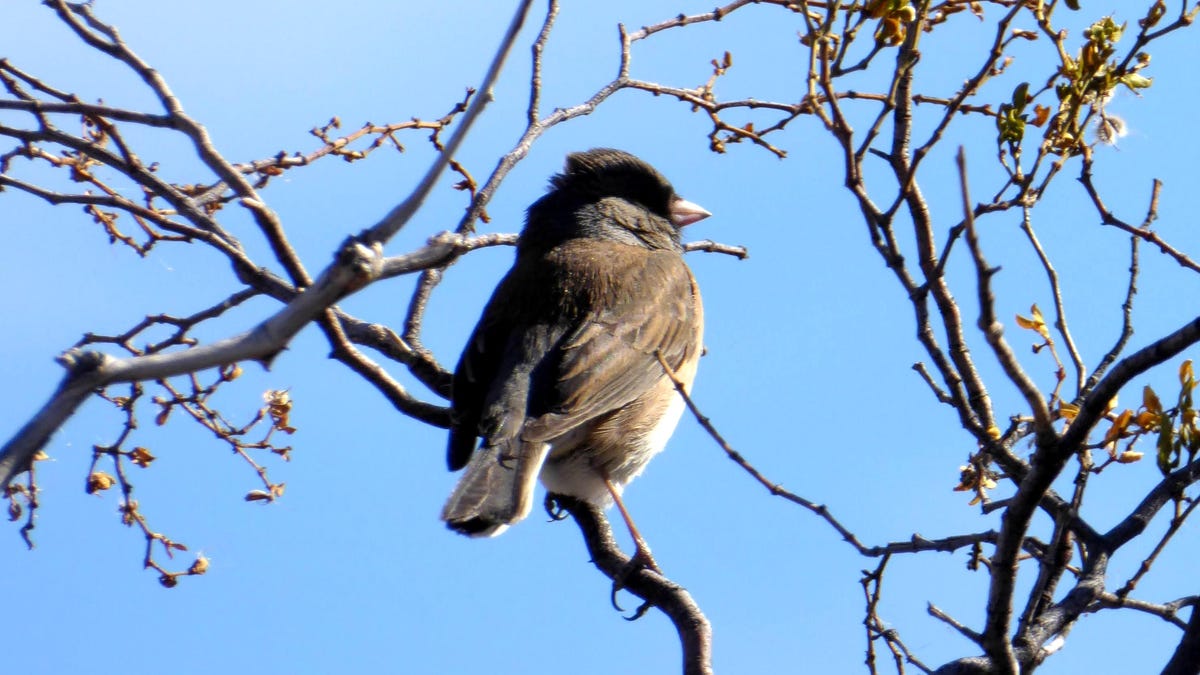Decline in bird songs may threaten human connections with nature
Deteriorating and shifting bird populations could forever alter the natural soundtracks of our lives.

A songbird perched on a branch in New Mexico.
In the morning, I listen for the sounds of doves cooing, starlings chittering and roadrunners clattering. But bird populations are in decline in North America, and songbirds are dying mysteriously. The loss of birds also means a loss of their songs. The soundtrack of the world is becoming more muted.
A study published in Nature on Tuesday led by researchers at University of East Anglia found the dawn choruses of birds in North America and Europe are losing volume and variety.
There isn't an exhaustive audio library of historic bird soundscapes to turn to. Instead, the research team used bird-count data combined with bird calls and songs from the Xeno-Canto online database to recreate soundscapes for 200,000 sites across 25 years. This let the team track the decline in diversity and intensity of bird songs over time.
"These results suggest that the soundtrack of spring is getting quieter and less varied and that one of the fundamental pathways through which humans engage with nature is in chronic decline, with potentially widespread implications for human health and well-being," lead author Simon Butler said in a UEA statement.
A major 2019 study on dwindling bird populations in the US and Canada suggested habitat loss and climate change could be driving factors. At the time, study co-author Peter Marra asked, "Can you imagine a world without birdsong?"
UEA post-doctoral researcher Catriona Morrison, a co-author of the study, said "the diminishing connection between people and nature" could be contributing to the global environmental crisis impacting bird populations. The team behind the birdsong study worries the loss of avian calls could further alienate people from the natural world.
I may live in a city, but the birds in my neighborhood remind me I'm a part of nature, too. I step outside when I hear an unusual bird call to look for its origin. I use the Merlin app to identify birds I don't know. I've named the local roadrunners and follow along as their babies grow up each year.
"As we collectively become less aware of our natural surroundings, we also start to notice or care less about their deterioration," Morrison said. "Studies like ours aim to heighten awareness of these losses in a tangible, relatable way and demonstrate their potential impact on human well-being."

